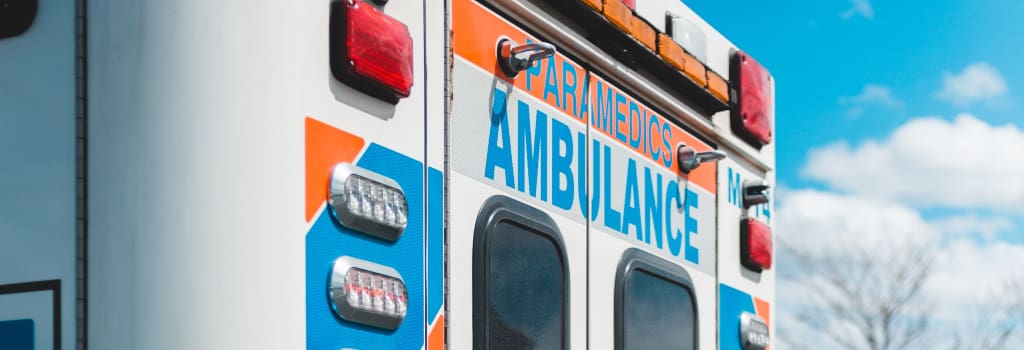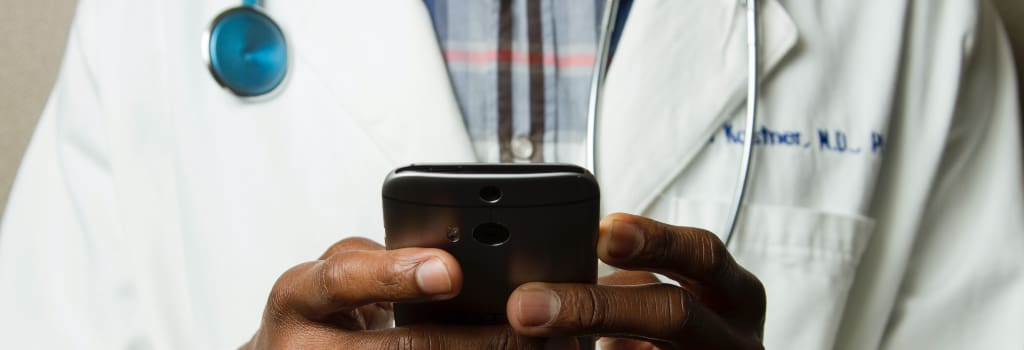Community
Staff Spotlight: Kara Spurbeck
In the aftermath of a car wreck, you may be left feeling overwhelmed – how do you know where to start? We’ll give you a hint: your health comes first.
Getting medical care after a car wreck is essential. If you were seriously injured in the accident, emergency services (ambulance) will probably be called to the scene, where they’ll take you to the nearest hospital for treatment.

Even if you don’t notice signs of injury immediately after the wreck, we strongly recommend getting evaluated by a medical provider. Why? It’s not uncommon for people to have injuries surface days after a car accident. Your body responds to the stress of the accident by producing endorphins and adrenaline, which help mask pain. You may notice pain or other symptoms later that day or in the following days once those endorphins have “worn off.”
There’s no one standard for getting care after a wreck. You have several options for medical care:
As you weigh your options, there are some factors to consider:
Ultimately, your decision about treatment should be based on the advice of your doctor or another medical expert. Each person is unique, so it’s vital to have a medical professional who’s personally monitoring your condition and treatment.
When you think of medical care post-accident, this is probably what first comes to mind. Whether you call an ambulance to the scene or have someone else drive you there, emergency medical services are considered the first line of defense for a reason. That’s because they have experience dealing with emergency medical conditions and know what to look for.
Some injuries obviously warrant emergency care. If anyone in either car has major bleeding, head trauma, broken bones, lacerations, or difficulty breathing, call an ambulance immediately. Head or neck pain may also warrant an Emergency Room visit – upper neck and spine injuries are very common in accident victims and can be very serious.
Even if you didn’t experience pain at the accident scene, you can still seek emergency treatment later. If you feel significant pain develop after the accident, whether a few hours or days later, you can still go to your hospital’s Emergency Department.
While we consider an ambulance (emergency medical services) to be the gold standard after an accident, we know that some may opt-out of that treatment.
If you felt that your injuries were minor or nonexistent after the accident, it’s still important to set up an appointment with your Primary Care Physician for a thorough physical evaluation. As noted above, it’s very common for people to develop pain in the days following a wreck. The longer you wait to see a doctor, the more your own health may be at risk.

Delaying medical care also makes it more difficult to prove that your injuries were caused by the collision. If you choose to file a personal injury claim later on, it’s vital to have documentation of a doctor’s evaluation, medical treatment, and medical bills.
What is Urgent Care? These facilities are a relatively new option for medical care. As the name suggests, an Urgent Care center exists to bridge the gap when people need medical care at a time when their physician’s office is closed, like on a weekend, but their injury or illness isn’t a life-threatening emergency that requires a visit to the ER.
Following an accident, If you need medical care for pain or discomfort that isn’t life-threatening, you may want to visit an Urgent Care center. The medical staff there can also help determine whether your injuries are serious enough to go to the Emergency Room. If they see signs of a head injury or other serious injury, they can help you get the emergency care you need.
Chiropractors are healthcare professionals who focus on the musculoskeletal system, especially the spine. If a doctor determines that you have “soft tissue” injuries – muscle and tissue strain, rather than broken bones or skin wounds – then a chiropractor can provide an excellent treatment option.
Your first visit to a chiropractor will likely include x-rays of your neck and spine. Chiropractors often use “adjustments” – manually applying force at very specific points on your body. Adjustments can help improve neck or spine alignment, reduce pressure on nerves, and generally reduce pain.
The goal of chiropractic care is to improve mobility and reduce pain in the long term. Many people see chiropractors as part of their regular routine, whether or not they’ve suffered injuries.
Recovering from an accident, particularly if you suffered broken bones or neck/spine injuries, is a process. Physical therapy is another common option for long-term accident recovery. Just as a doctor may prescribe medication for pain, they may also prescribe physical therapy to help with your injuries.
Physical therapy typically involves regular appointments for a set period of time. It can be done in inpatient (for severe injuries) or outpatient settings. Your physical therapist will also give you exercises to perform daily at home.
Physical therapy can help speed up your recovery time, help you regain strength or function, and improve your range of motion. It can also help reduce or prevent long-term effects from the accident. If you file a personal injury claim, attending PT is another way to show you are taking your treatment seriously.
Are you – or someone you love – dealing with injuries after a car wreck? Was the other driver at fault? You may have legal rights to compensation. Taylor King Law can help.
We’ve been helping accident victims for more than 30 years. At Taylor King Law, we handle the process from start to finish. We have a dedicated team of attorneys and staff to ensure that every step of your case is handled professionally and with your best interest in mind.
Call us today at 1.800.CAR.WRECK (1-800-227-9732). You can also reach us online through our chat feature or using our Online Contact Form. You’re just a call or click away from getting the help you need.
Taylor King Law has 7 offices across Arkansas and Texas.
We’re on your side – by your side.
